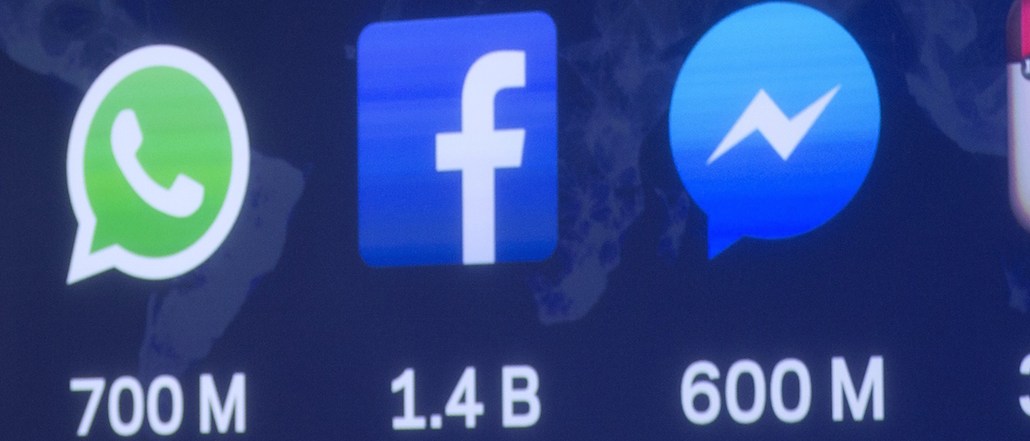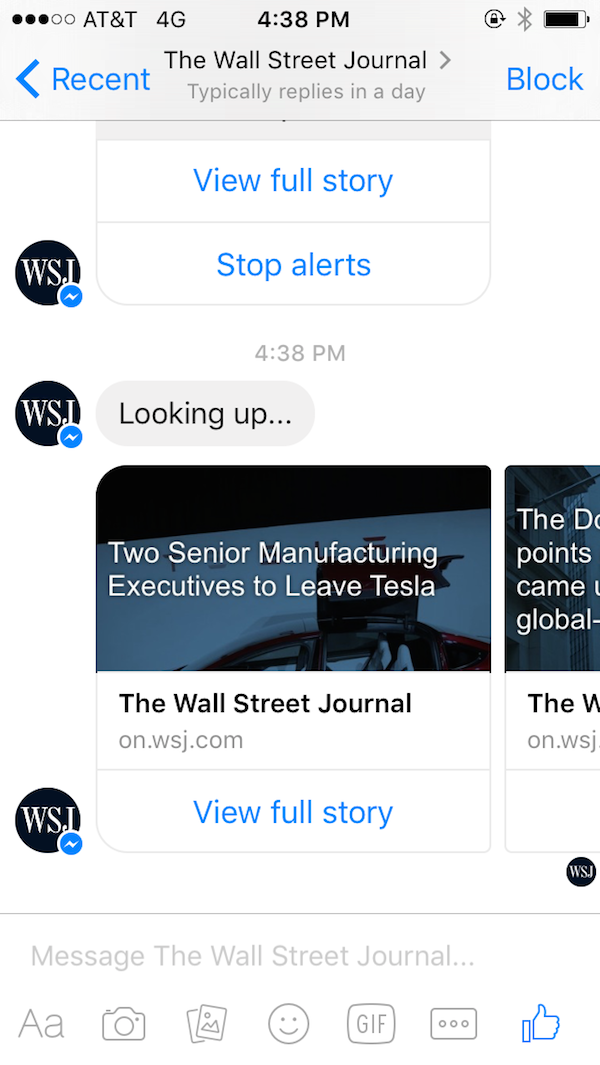Secure your place at the Digiday Media Buying Summit in Nashville, March 2-4

Chatbots are supposed to be the big thing in publishing right now. The product got a big boost when Facebook announced a bot platform in its Messenger app last month, with launch partners that included CNN, The Wall Street Journal and Poncho, a weather service. Others that weren’t part of the initial rollout scrambled to capitalize on the attention by rushing out announcements that they would have bots coming soon, too, to interact with (and push out stories) to users.
But since then, the list of bots hasn’t expanded much beyond the handful of publishers and brands that were available at launch. There are a few reasons. Several publisher developers said they suspect Facebook wasn’t prepared for the barrage of bot submissions and have been patiently waiting in the cue to be green-lit.
“Facebook isn’t quite ready to accept all the submissions and approve them,” one said.
Facebook also hasn’t done much to promote the bots beyond the F8 announcement. They pop up for a portion of Messenger users see them when they search for people and groups, but everyone else has to hunt for them, said John Borthwick, CEO of Betaworks, which developed Poncho. “Facebook is just starting to figure out how to roll it out and promote it,” he said.

Resources is another issue. Building a basic bot doesn’t take much; NBC News’ Breaking News app had one person get a simple one out in four days, gm Cory Bergman said. Borthwick said he had a simple one up and running in 20 minutes. Several publishers have built their bots quickly using outside partners, such as Chatfuel (TechCrunch, Complex Media), Spectrm (Business Insider) and Outbrain (CNN). NBC News and Breaking News are teaming up to develop forthcoming bots.
But a quick build can lead to a generic bot. Also, a bot’s search feature is only as good as the publisher’s data about its content, which can provide more personalized story recommendations for users.
Building bots also can conflict with publishers’ other priorities, namely, video.
A Messenger bot “sounds like something fun with which to experiment — but it will not immediately change our core focus at the moment,” said Bryan Goldberg, founder of Bustle. “Facebook Live is a massive initiative that is going to require substantial resources and focus on the part of digital publishers. Such media companies would be wise to focus almost entirely on their core publishing operations and Facebook Live. Other initiatives are not distractions by any means, but focus can only divide itself so many ways.”
That said, others see an advantage in being a first mover in the bot space. Publishers are trying hard to distribute their content, and bots are a good investment because you can link back to your own site, unlike in closed systems such as Facebook Instant Articles and Snapchat. “In Snapchat, it lives in their proprietary system, and you have to build proprietary content,” Borthwick said.
For CNN, getting in early was a way to reach an audience that’s become bigger than social, and learn how people are using the app so it can improve the experience, said CNN’s head of social, Samantha Barry. And most of the articles are repurposed stories from CNN.com, so there’s low investment.
“We wanted to learn audience behavior, so we’re not going to push 700 notifications a day,” she said.
More in Media

Digiday+ Research: Dow Jones, Business Insider and other publishers on AI-driven search
This report explores how publishers are navigating search as AI reshapes how people access information and how publishers monetize content.

In Graphic Detail: AI licensing deals, protection measures aren’t slowing web scraping
AI bots are increasingly mining publisher content, with new data showing publishers are losing the traffic battle even as demand grows.

In Graphic Detail: The scale of the challenge facing publishers, politicians eager to damage Google’s adland dominance
Last year was a blowout ad revenue year for Google, despite challenges from several quarters.





